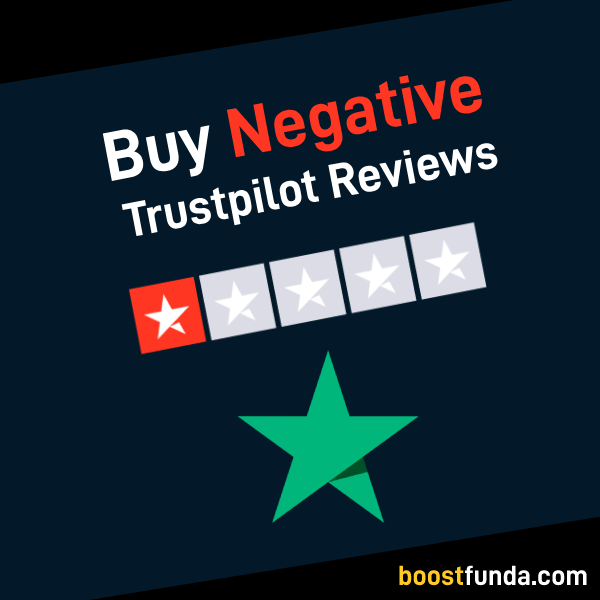Negative Trustpilot Reviews (Negative Feedback)
In our interconnected world, online reviews like those on Trustpilot have become pivotal. They’re not just opinions; they’re powerful tools influencing purchasing decisions and business reputations.
When customers face bad experiences, ranging from poor service to unresolved issues, they often turn to Trustpilot to express their dissatisfaction. These reviews serve as beacons, guiding or warning future customers. These negative reviews serve various purposes, from warning others to seeking redress for grievances.
The Flip Side: Buying Negative Reviews
Surprisingly, there’s a growing trend where individuals and businesses buy negative Trustpilot reviews. This practice aims to highlight the shortcomings of competitors or to bring attention to scams. While it might seem like a straightforward way to alert others about a scam, this approach raises ethical questions.
Why Buy Negative Reviews?
The reasons for buying negative reviews are varied:
- Exposing Scams: If you’ve fallen victim to a scam, posting a negative review can help others avoid the same fate.
- Warning Potential Customers: These reviews act as a cautionary tale for those considering engaging with a particular business.
- Forcing Accountability: Negative reviews can pressure businesses to improve their services or products.
The Ethics of Buying Reviews
While the intentions might be noble, buying reviews is a murky ethical area. It begs the question: does the end justify the means? Here are some points to consider:
- Authenticity: Genuine customer experiences are replaced with paid opinions, which can mislead other consumers.
- Impact on Businesses: Small businesses, in particular, can be disproportionately affected by negative reviews, regardless of their authenticity.
- Legal and Moral Implications: The practice of buying reviews, especially false ones, can have legal repercussions and is generally frowned upon in ethical business practices.
Constructive Alternatives
Rather than buying negative reviews, consider these alternatives:
- Direct Communication: Reach out to the business directly to resolve issues.
- Legitimate Reviews: Encourage genuine customers to share their honest experiences.
- Legal Action: If you’ve been scammed, pursuing legal action or reporting to relevant authorities is a more ethical approach.
Last Words
Buying negative Trustpilot reviews is a complex issue. While it can bring attention to scams and unethical practices, it raises serious ethical questions. It’s crucial for consumers and businesses alike to weigh the implications of such actions and consider more constructive ways to address grievances and scams. So, Boostfunda is here to help you in this matter. Remember, the goal is to foster a transparent, honest, and fair digital marketplace for all.




